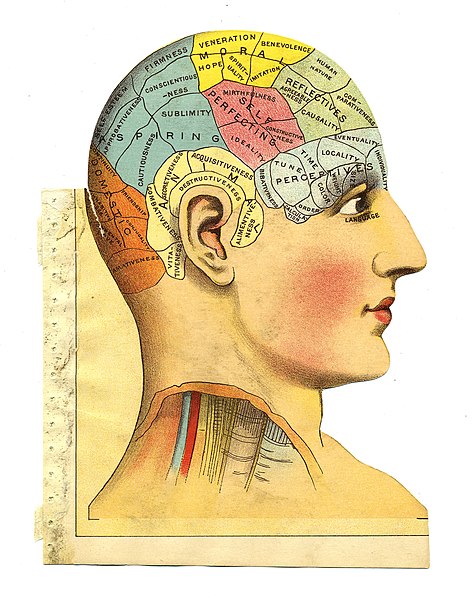Hello everybody. I am a cognitive theorist. Throughout my short scientific career, I have tried to explain to family and friends what I do. This post consolidates some of my answers about what cognitive science is, what to do if the object of your study is the darkest box, why interdisciplinary research with the lack of a single methodology is OK, and is there any chance of getting any benefit from all this. Spoiler alert: yes, it's not for nothing that large Western universities churn out cognitivists on an industrial scale every year, and they all disappear somewhere (safely).
In the presentation, I will adhere to, albeit a simplified, but professional language of my specialty, in order, among other things, to convey the atmosphere. If this becomes an obstacle to understanding and dialogue, complain!
What are we studying?
Cognitive science or cognitive science (or sciences, but more on that below) is a general term describing a scientific field that began its formation in the 1950s and deals with issues related to the mind at various levels of description. These questions include, both directly related to the work of the brain (how does the brain work? What is the connection between the brain and the mind?), And more general, concerning the behavior of intelligent agents, their interaction with each other and the environment, as well as ways of processing various types of information. The above topics can be studied from different angles and using different approaches and methodologies.
Traditionally, cognitive science includes six disciplines:
psychology
computer science (especially machine learning, artificial intelligence and robotics)
neuroscience (-y / -i)
anthropology
linguistics
and philosophy

, , . , - .
— . (IV o ..) , . — , . , , .
19- , — . . - - , , . (:
, , — , . , 19-(!) , , --. , , , . - () 1980- .

. -, , , . — . , ( ). , , . — , , , , , .
, . - ( ), , , , . « = », , , ...
, — ?
, . , , . , « », - . C , , . , , , , . . — .
— . , , :
— , . — , , .
— . C , , . - , . — , , .
— . , , . — , , . - -. — . , , .
, «» «» – . , « » — , « » — .
–
? -, — . , — . , , , , , . , ( ), ( ) — . , «» (- “the mind-body problem”), , 400- .. , . - (:
, , ( ) , , , ( «self», ), . , , - .
( ), , , , . , , . — . -, - , -, - , , (.. ). , , , — .

— ( , …) ( , , ). . , , , -.

, 2012 , . - , , , , . , , .
. , , (, , ) , , , , , . — . , , « » ( !). , , , « » . .
, . , , , .
, e , . , , . , , .
?
, . , , «» , , . . — , , . , , , , . , « », .
, , , , , . , 70- , , , 35- — , .
, .
— = . , , ( ). , - , , .
— , , . . , , ( , ). , , , - , , . , , . , . , . . , , . , .

(Amir Amedi/Cell Biology) . , , AlphaGo ( , ). AlphaGo Zero, , , , . (-, , , …). , , , , . , , .
2014 . «» , . . — , , , . . « GPS» , , , .. , . , ( ).

, (Sanders et al. 2015) , . , . , , , . , , , . . , , , , .
. , . , , . , , , «» . , , . , , , . - « ». , , , , — , . - , , , () . , « », . . ( ). , , , , . , , . , , .
.
. , , , « » « ». , . , .